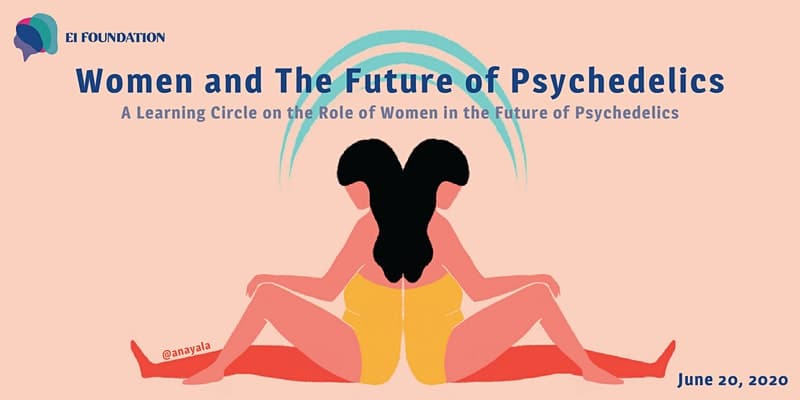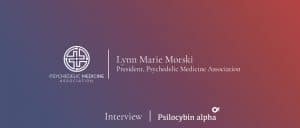As our readers know, Psilocybin Alpha is primarily geared towards providing resources to those looking to invest in the emergent psychedelic sector. This interview is a slight detour from the others in our series, as it instead focuses on the broader societal issues surrounding psychedelics, and the personal story of an individual in the space.
Alongside our central focus on psychedelic investments we believe it’s important to understand the societal implications of the commercialisation of psychedelics. This includes the consideration that psychedelics may only be licensed for use by a limited number of providers, as opposed to being decriminalised en masse. In such a scenario we may see psychedelics posing a bleaker outlook for some demographics than marijuana, with access to these substances metered by pricing structures and the continuation of criminalisation.
Beyond these potential social issues, there are also differing approaches to the framing of contemporary psychedelic substance usage. As Companies seek to commercialise psychedelics, some are wary that the substances are being abstracted from a lineage of usage that is tied to spirituality and healing.
Companies and organisations have differing approaches to this, with some seeking to actively draw on this history, focusing on the plant-based, ‘natural’, associations of substances like psilocybin. This is especially true of some decriminalisation movements, such as Decriminalize Nature Canada.
Others have sought to place a more pharmaceutical, scientific sheen on compounds, abstracting from plant-based conceptions toward a more clinical, chemical portrayal; perhaps present in the language of 5-HT2A receptors and 5-MeO-DMT.
In reality, most Companies in the space are attempting to draw on both the time-tested, anecdotal foundations of the efficacy of psychedelics, and meet the scientific and regulatory realities and expectations of the present landscape.
We are increasingly interested in shedding light on these emergent dynamics that cut across the sector, as well as providing relevant coverage of decriminalisation and legalisation efforts. To this end, later this month we are bringing you a piece from TheraPsil where we discuss their battle to bring safe, legal psilocybin-assisted therapy to terminally ill Canadians.
For this piece, we reached out to Ashley Lukens, PhD, Ei Foundation’s Chief Impact Officer. Ei Foundation is the impact arm of Ei Ventures (a subsidiary of Orthogonal Thinker), seeking to ensure that access to plant-based substances is safe, legal and affordable; achieved via the funding of education, advocacy, and community organising initiatives. Ashley also offered us a deeply personal account of her experience with plant medicine. If you’re interested in more of these perspectives, we’ve included a link to an upcoming discussion happening this Saturday, hosted by Lukens herself.
PA: Thanks for taking the time to speak with us, Ashley. Could you give us a brief overview of Ei Foundation, and how it relates to the more ‘commercial’ arm, Ei Ventures?
AL: Ei Foundation represents the impact arm of Ei Ventures. We exist to catalyze and uplift the movement for expanded safe access to plant medicines.
Ei Foundation is the beating heart and roots of Ei Ventures. It reflects our deep and authentic commitment to the communities who have held the sacred healing of plants in their food and health systems, helping them to survive their recent and intense criminalization. Today this movement guides the re-emergence of plant medicine into the cultural common sense as “kNew” healing modalities that are more impactful and effective than their pharmaceutical counterparts.
PA: What’s your personal story?
AL: Like everyone, my story is long and complicated. What feels important is 1) I understand myself first and foremost as a community organizer. Through this work, I have engaged in a 20+ year journey in reckoning with my own power and privilege as a wealthy, educated, white, cis-gendered, heterosexual. Both my doctoral research and my years running the Hawaii Center for Food Safety’s fight against pesticide manufacturers in Hawaii have led me to ask, over and over, where can I be most effective as an activist? How can I authentically show up for my community? When should I step back? Working in philanthropy is my most recent chapter. Psychedelics is the most vibrant lane of that pivot but I continue to engage deeply on women’s issues and protecting land and natural resources as a funder through my consultancy.
PA: With that in mind, what are your concerns about the current direction of the psychedelic space?
AL: Rather than focus on what’s wrong, I’ll describe what I want to see: I want diverse leadership. I want values aligned capital that fights for people, planet and profit equally. I want the processes and relationships that underpin the commercialization of plant medicine to heal rather than harm.
PA: What will Ei.Foundation’s contribution to those goals look like?
AL: We imagine a vibrant mycelial network of resourced individuals and organizations collectively fighting for safe legal access to plant medicines.
PA: Who are you seeking to reach?
AL: Anyone seeking safe, affordable access to the healing power of plant medicines. Certainly the twin, interconnected crises facing our global community speak to the foundational importance of community health and how health outcomes are the direct result of deeply rooted structures of power that traumatize and re-traumatize human beings everyday. Active disruption of these structures of power is only possibly if we raise our consciousness around how these power structures work and attempt to heal the painful wounds they have caused within our communities. Plant medicine is one of many healing modalities to help move this process forward.
PA: We have been keeping a keen eye on your website, when can we expect to hear from Ei Foundation next?
AL: Right now we are listening and learning. We’ve heard a lot from voices in the movement. Some insights and offerings that stick with me are: 1) folx have been at this work for decades if not generations; 2) they’re concerned about the current trends in commercialization; 3) fundraising for this work is scary and/or intimidating and 4) so is navigating the policy process! In response, what feels most important to say to this movement and your readers is: we hear you. Let’s move forward together.
When the time is right, we’ll know our best next step.
PA: And, in the spirit of breaking from convention, please feel free to share more of your personal story with psychedelics.
AL: In November 2017 I participated in a plant medicine ceremony in Peru. During the ceremony I saw myself get very sick. I saw the people and the relationships I would need to lean on during this time. I inventoried and in some places cleared the emotional blocks that would prevent me from getting the help that we all so desperately need. 10 days after this vision, I was diagnosed with stage 2 brain cancer.
Plant medicine taps you into your highest self, your intuition, and if you let her, she gives you the lessons and the roadmaps you need to live your best life. To be clear, it does not show you anything you did not already know and it therefore stands to reason that my body and parts of my mind already knew I was sick and therefore used this pathway to communicate that to me.
During the ceremony I also visited very dark places in my past and in the earth. I sat with its/my/our pain and trauma and cried a deep mourning, howling cry. But I wasn’t scared. I knew that the suffering was there and that I had to move through it, to suffer through it, in order to end it. I was both the howling crying woman and the voice that reassured her, “cry my dear. Cry. Let this pain out. You will be ok.” From that place of deep suffering but deep calm I slowly collected the crying self and put her to bed. I was able to say to myself the entire time, “you will be ok.” Throughout my cancer journey, as I faced the dizzying fear and chaos and sadness and dismay, that voice came back to me clearly. “I/you/we got this. We’re gonna be ok. I know what I need to do. You know the path to healing.”
The question then became: will I have the strength, the courage, and the focus to walk that path? Will I be able to leave toxic relationships? Will I be able to let go of negativity and my obsession with pleasing those who don’t love me or even like me? Can I rest and release myself from the burdens of thinking I need to be a high-performer? Will I take the time to sit still? To read? To meditate? To rest?
An in that moment, I found the meaning of my cancer and my mantra, a love letter to my tumor. I say, “You heal me, I’ll heal you.”
If you’re interested in these broader issues and discussions, you may find the following event interesting:
Join our Newsletter
Get our interviews delivered to your inbox by signing up to our newsletter.







